How Often To Water And Fertilize A Vegetable Garden
When it comes to successfully fertilizing the plants in your vegetable garden, when and how you fertilize is just as important as what fertilizer you use!
No matter how rich and fertile a garden's soil is, most vegetable plants still require a few boosts of fertilizer now and then to reach their full potential.
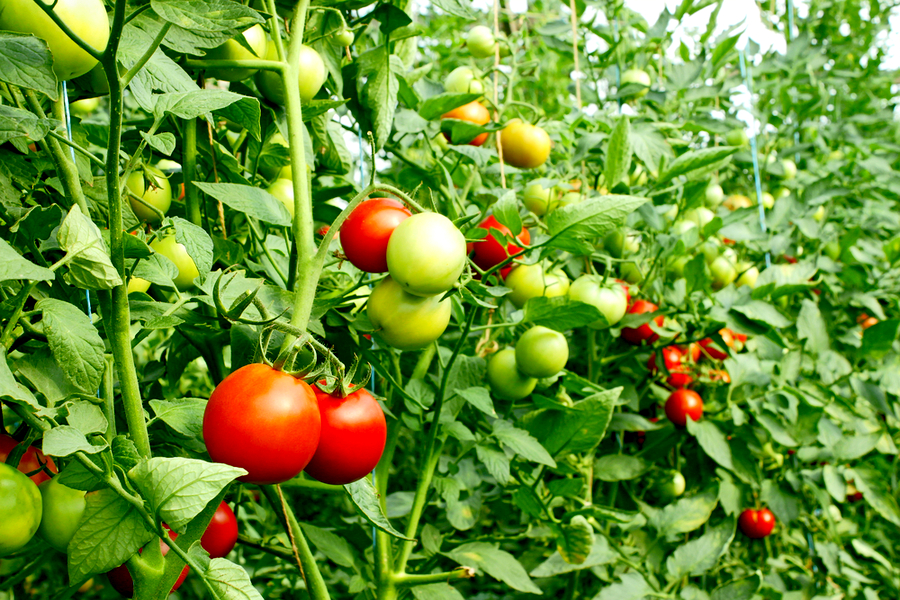
Tomatoes, peppers, and cucumbers, like many vegetables, are heavy feeders from the soil. And as they grow, they begin depleting the soil of nitrogen, potassium, and other vital nutrients.
But by simply applying the right kind of fertilizer, at the right intervals, plants can have the energy they need to grow strong and healthy. And of course, in the process, produce a bigger harvest!
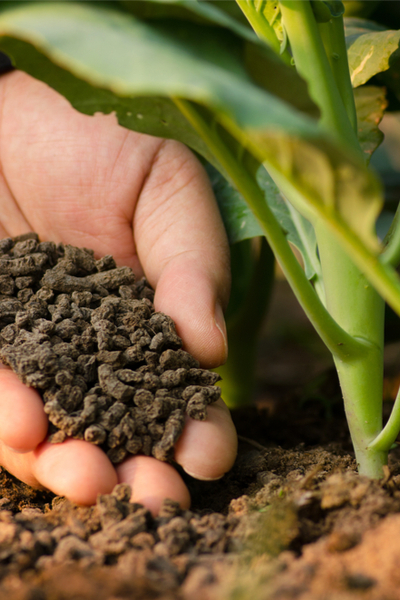
With that in mind, here are 5 big keys to fertilizing your garden for success – including when, how, and what to use to get the best results possible from your garden!
Fertilizing Garden Plants – 5 Secrets To Success
#1 Allow Plants To Get Established Before Fertilizing
First and foremost, don't fertilize too early. Fertilizing before plants develop in the garden can injure plants, and in some cases kill them.
Young tender seedlings and transplants need time to adjust to the soil and outdoor life. Unfortunately, a big burst of early nutrients can shock or burn their tender roots.
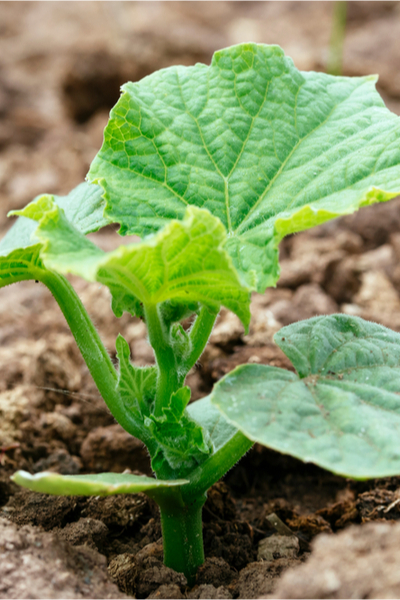
Allow 7 to 10 days after transplanting to begin fertilizing. With seed crops such as corn and beans, allow the seeds to germinate and grow for a few weeks as well.
#2 Fertilize Early Morning / Late Evening
Never fertilize vegetable plants during the heat of the day. Plants are at their highest level of stress during the mid-day sun.
Not only are they less likely to be able to soak up the nutrients, depending on the fertilizer and method used, the scorching sun can burn and injure plants.
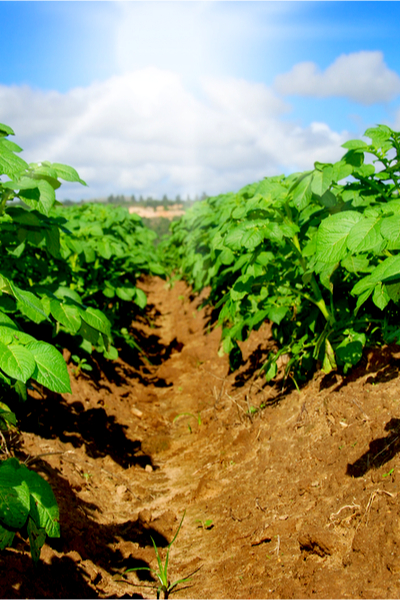
Instead, fertilize plants in the early morning or late evening to avoid any issues and maximize the nutrients.
#3 Choosing The Best Fertilizer
So what are the best natural fertilizing options to use for garden plants? The key is picking fertilizers that provide a burst of nitrogen, potassium and phosphorous. These are the key nutrients most vegetable plants need most.
We prefer using liquid fertilizer over granular. Liquid fertilizers such as compost tea, worm casting tea, or all-purpose liquid organic fertilizers provide a much faster boost to plants. And they all include the needed ingredients for fast growth. (See : 4 Liquid Organic Fertilizers To Power Your Garden)
Liquid fertilizers also have the added benefit of being absorbed both through the roots and foliage. For our plants, we apply a quarter gallon of liquid fertilizer to each plant every two weeks for 8 to 10 weeks. (Product Link : Performance Organics Fertilizer)
#4 Power Mulch For More Nutrients
Perhaps this is the biggest "secret" of all to fertilizing garden plants. In addition to the liquid fertilizing intervals, power mulch your plants for even more success.
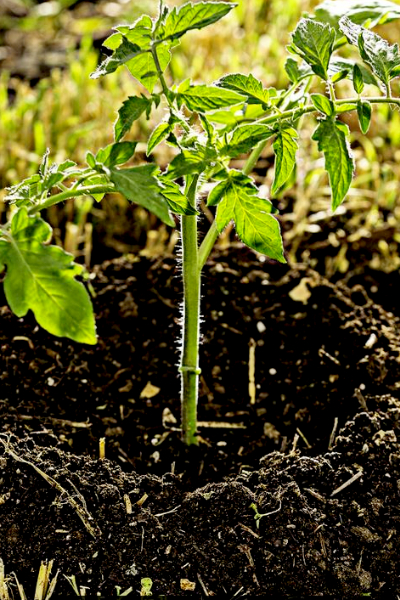
What is power mulching? It is providing a nutrient filled mulch at the base of each plant that slowly releases nutrients over time.
We mulch our plants with a few inches of compost about 8 to 10 inches around each plant. And mixed into that compost is a quarter cup of worm castings to add even more slow-release power.
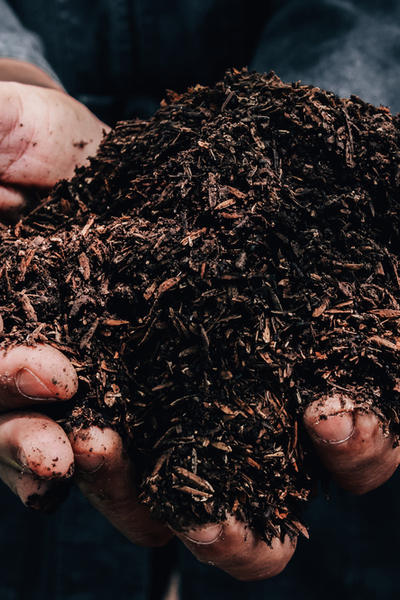
This "ring" of power around plants holds in moisture and prevents weeds. It also helps soak in the liquid fertilizer when applied, and keeps it from running off. But even more, it releases nutrients to the roots below every time it rains or you water.
#5 Know When To Stop
And finally, it is also important to know when to stop fertilizing your garden plants. Once a plant hits full production mode in mid-summer, it is time to cease fertilizing all-together.
At this point, the plant will only use the added strength to grow additional foliage – and not produce or fill out the blooms and young crops on its stems and vines.
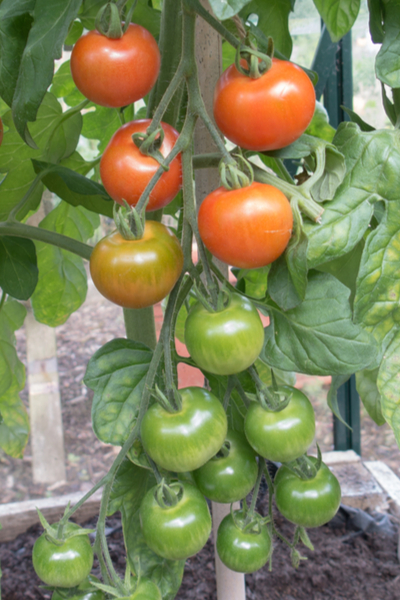
In fact, fertilizing vegetable plants too late in the summer can actually decrease yields. For best results, fertilize every two weeks for the first 8 to 10 weeks, and then stop.
Here is to fertilizing your garden plants for success, and to your biggest and best yields ever! Happy Gardening – Jim and Mary.
As always, feel free to email us at thefarm@owgarden.com with comments, questions, or to simply say hello! To receive our 3 Home, Garden, Recipe and Simple Life articles each week, sign up for our free email list that is located in the middle of this article. This article may contain affiliate links.


How Often To Water And Fertilize A Vegetable Garden
Source: https://oldworldgardenfarms.com/2020/06/04/fertilize-garden-plants/
Posted by: brittpreal1963.blogspot.com

0 Response to "How Often To Water And Fertilize A Vegetable Garden"
Post a Comment